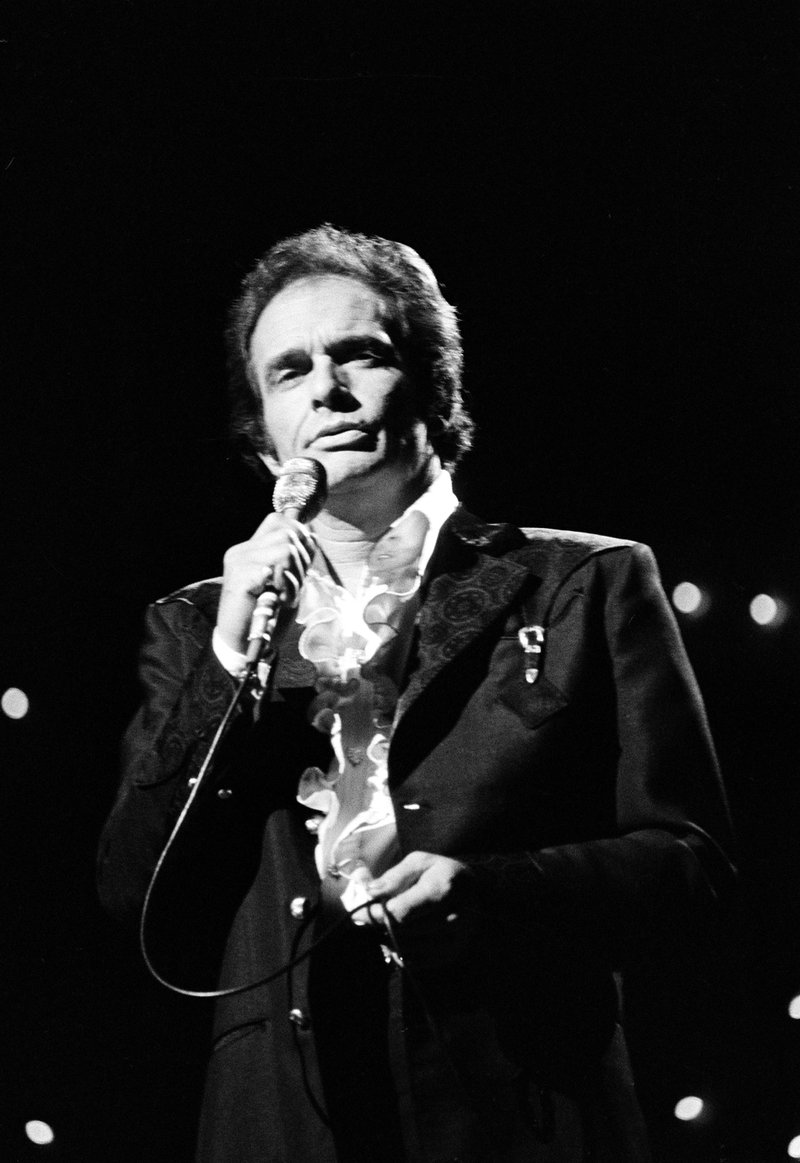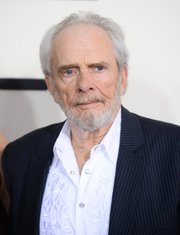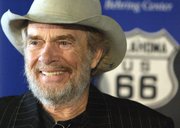NASHVILLE, Tenn. -- Country music giant Merle Haggard, who rose from poverty and prison to international fame through his songs about outlaws, underdogs and an abiding sense of national pride in such hits as "Okie From Muskogee" and "Sing Me Back Home," died Wednesday at 79.
Haggard's manager, Frank Mull, said the country star died on his birthday in Palo Cedro, Calif., of pneumonia that he had been battling for months. His publicist, Tresa Redburn, said no official cause of death has been determined.
The singer had kept up an ambitious touring schedule, but the pneumonia in both lungs had forced him to cancel or postpone several shows this year, including a concert originally scheduled for March 3 at The Convocation Center at Arkansas State University in Jonesboro that had been reset for May 10.
Mull said his family was by his side when he died at home and was planning a funeral for Saturday at his home.
A masterful guitarist, fiddler and songwriter as well as singer, the Country Music Hall of Famer with a firm, direct baritone recorded for more than 40 years, releasing dozens of albums and No. 1 hits.
"He was my brother, my friend. I will miss him," said Willie Nelson, his longtime friend, in a statement. Tanya Tucker recalled fondly the time they ate bologna sandwiches by the river: "I just can't imagine a world without Merle. It's so hard to accept, but I'll continue honoring him on stage just as I do during every show."
The White House called Haggard a "legend" and said President Barack Obama was sending his thoughts and prayers to Haggard's family.
Haggard -- along with fellow California country star Buck Owens -- was a founder of the twangy Bakersfield Sound, a direct contrast to the smooth, string-laden country records popular in Nashville, Tenn., in the 1960s.
His music was rough yet sensitive, reflecting on childhood, marriage and daily struggles, telling stories of shame and redemption, or just putting his foot down in "The Fightin' Side of Me" and "I Think I'll Just Stay Here and Drink."
"We've lost one of the greatest writers and singers of all time. His heart was as tender as his love ballads," said Dolly Parton. "I loved him like a brother."
General audiences knew him best for "Okie from Muskogee," a patriotic anthem released in 1969 at the height of the Vietnam War that quickly became a cultural touchstone for its anti-hippie lyrics proclaiming "we don't burn our draft cards down on Main Street; we like living right and being free."
"Okie from Muskogee" made him a hero among conservatives, but he softened on the counterculture and released the lighthearted "Big Time Annie's Square," a tribute to a hippie girl and her "crazy world." More recently, he was a backer of prominent Democrats. In 2007 he unveiled a song to promote Hillary Clinton and two years later he penned "Hopes Are High" to commemorate Obama's inauguration. In "America First," he even opposed the Iraq War, singing "Let's get out of Iraq, and get back on track."
In 1970, Haggard was named entertainer of the year by the Country Music Association, and Okie From Muskogee won best album and single. He picked up another CMA album of the year in 1972 for Let Me Tell You About a Song.
He was inducted into the Country Music Hall of Fame in 1994, the same year he won a Grammy for best male country vocal performance in "That's the Way Love Goes."
Along with his albums of original songs, he recorded tributes to such early influences as country pioneer Jimmy Rodgers and Western swing king Bob Wills. He also resisted the slick arrangements favored by some pop-country stars.
"I'll tell you what the public likes more than anything," he told the Boston Globe in 1999. "It's the most rare commodity in the world -- honesty."
Born in 1937 near Bakersfield, Calif., Haggard was raised in a converted railway boxcar, the only dwelling his parents could afford.
After his father's death, he turned to petty crime and spent several years in and out of institutions. He served three years in San Quentin as inmate 845200 for burglarizing a cafe during a drunken spree. It was during that stint he saw Johnny Cash play, and he returned to Bakersfield at age 22 in 1960 ready to write music.
Fame brought him unexpected respectability. His criminal record was erased by then-Gov. Ronald Reagan, who pardoned him in 1972, and he was invited by President Richard Nixon to sing at the White House.
Haggard was active in his 70s, and received strong reviews for his 2010 album I Am What I Am. He lived his last years outside Redding with his fifth wife, Theresa Lane. He is survived by six children, and his sister Lillian Haggard Rea.
A Section on 04/07/2016


